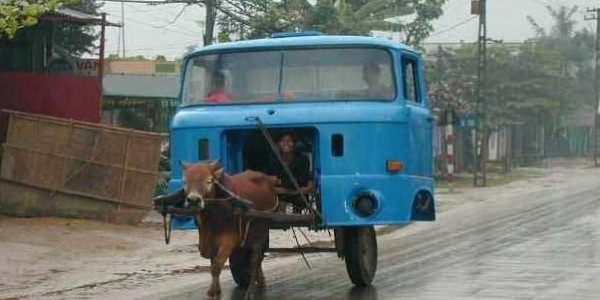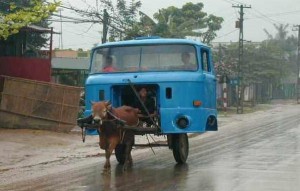There are but a few places in the world with left-hand traffic or LHT. Simply put, the steering wheel would be on the right side of the front seat of a vehicle. And as 72% of the world’s roads carry traffic on the right, some coil right-hand driving as driving on the “wrong side of the road”. More often than not, RHT countries use cars that are LHD or left-hand driven where the driver’s seat is on the left-hand side of the car. Conversely, LHT countries quintessentially utilize vehicles that are RHD or right-hand drive.
Understanding guidelines in driving in LHT countries is essential for mobility stressing on countries where public transport is nil to impossible. Also, this information will be crucial for the pedestrian-slash-commuter who can save on a lot of viable humiliation and casualty by checking this page. With a bit of luck, this short number will encourage the readers and students in particular to conduct further research on the countries intended for visit. Road orientation is bizarre, etiquette is unusual, and all the while the car feels wrong while driven on the right. So if you’re a traveller or expat who has been accustomed to driving on the right side of the road, or simply some ignoramus looking for factoids, here are some sane LHT reminders and road advices.
1. The obvious, the driver’s seat is on the right.
2. Traffic is mainly kept left unless overtaking.
3. Approaching traffic is seen also from the right.
4. For the most part, the traffic signs are on the left side of the road facing the motorist.
5. An overtaking vehicle passes the other vehicle/s on the right, with some exemptions.
6. On a roundabout, the traffic direction is clockwise.
7. Freeway exits are on the left.
8. Public transport entrance and exit are on the left, save for some with additional doors.
9. The pedestrian, upon crossing a two-way road, must look for traffic from their right.
Renting a car is beneficial to mobility and comfort especially in hot countries, the Middle East, for instance, where gasoline is generally more expensive than water. Also, this is a more economic option when travelling in a crowd of 3 or so. Although the orientation and directions can perplex, there are quick and easy advices that can be taken on. Not so much to worry about besides switching orientations really. So, here are 4 no-brainer quick safeties the traveller can do to ease the new joy of right-hand driving.
1. Go for AT (automatic transmission). As if driving in an entirely different universe isn’t hard enough, lessen the challenge at hand by not worrying how to switch gears with your left hand, particularly when entirely inexperienced with driving on the right.
2. Know the car before you hit the road, like you were when you were learning to drive. Basically, this means feeling the car and familiarising yourself with the car’s controls and equipments, which are almost at the same place (just on the right), except for the handbrake and gear. A-B-C which stands for accelerator, brake, and clutch, is the same on the right.
3. Do a dry-run. When you haven’t got a chance to practice back home, then drive some rounds or the basic forwards and backwards at the rental company’s car park. The emptier the lot, the better and safer!
4. Once you hit the LHT roads, remember to always keep left. All the right-hand driving adjustments may confuse you so much as to divert you. It doesn’t take too long to get used to this with constant driving and practice. The main principle is to have the driver nearest to the center line. These road and transport choices go way back in history, mainly British and its flag-plunging history. There would have been more than 75 LHT-oriented countries, if not for most countries adapting to the road system of their colonizers, as Spain and France. Most parts of the world that has become a part of the British Empire remained to drive on LHT, as the former French colonies maintained RHT.
Studies show that countries driving on LHT have lower collision rate just because humans utilize far better the dominant eye, which is more commonly the right. Nevertheless, driving on the left-side of the road is just as safe as on the right. Those that say otherwise are merely theorizing. Among countries or in any place, traffic laws may differ insofar as traffic lanes, licenses, insurance policies and highway etiquette – adjustments are always necessary even in Right-Hand Traffic (RHT) countries. Research of the traffic laws at the country of destination is not just a smart decision, it is intuitive.
LHT countries include:
1. Anguilla
2. Antigua and Barbuda
3. Australia
4. Bahamas
5. Bangladesh
6. Barbados
7. Bermuda
8. Bhutan
9. Botswana
10. Brunei
11. Cayman Islands
12. Christmas Island (Australia)
13. Cook Islands
14. Cyprus
15. Dominica
16. East Timor
17. Falkland Islands
18. Fiji
19. Grenada
20. Guernsey (Channel Islands)
21. Guyana
22. Hong Kong
23. India
24. Indonesia
25. Ireland
26. Isle of Man
27. Jamaica
28. Japan
29. Jersey (Channel Islands)
30. Kenya
31. Kiribati
32. Cocos (Keeling) Islands (Australia)
33. Lesotho
34. Macau
35. Malawi
36. Malaysia
37. Maldives
38. Malta
39. Mauritius
40. Montserrat
41. Mozambique
42. Namibia
43. Nauru
44. Nepal
45. New Zealand
46. Niue
47. Norfolk Island (Australia)
48. Pakistan
49. Papua New Guinea
50. Pitcairn Islands (Britain)
51. Saint Helena
52. Saint Kitts and Nevis
53. Saint Lucia
54. Saint Vincent and the Grenadines
55. Samoa
56. Seychelles
57. Singapore
58. Solomon Islands
59. South Africa
60. Sri Lanka
61. Suriname
62. Swaziland
63. Tanzania
64. Thailand
65. Tokelau (New Zealand)
66. Tonga
67. Trinidad and Tobago
68. Turks and Caicos Islands
69. Tuvalu
70. Uganda
71. United Kingdom (England, Wales, Scotland and Northern Ireland)
72. Virgin Islands (British)
73. Virgin Islands (US)
74. Zambia
75. Zimbabwe
***
Josh Boorman
Editor-in-chief
Backpacking Addictz
Twitter: @backpackaddictz






Leave A Response